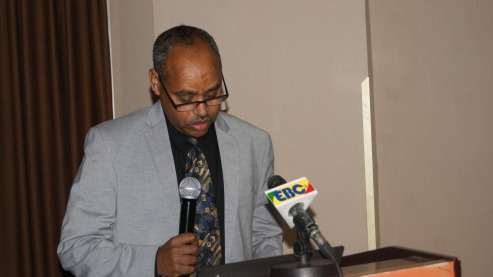The Population Health Environment Ethiopia Consortium (PHEE), in collaboration with Jimma University and Health Bureau of Oromia, has conducted a workshop on linkages of climate change, population dynamics and reproductive health/family planning (RH/FP) in river basins, forests, protected and pastoralist areas of Oromia Regional State in Ethiopia.

More than 100 people from research institutions, government organisations, house of people representatives and NGOs participated in the workshop in Addis Ababa.
Negash Teklu, Executive Director of PHEE, noted that they aimed at exploring the linkages among climate change, population dynamics, RH/FP, development issues and to recommend multi-sectorial partnership and share best practices in adapting to climate change challenges from the various regions taking in to account Oromia region.
Representative of the Minister, Ministry of Environment, Forest and Climate Change, said that integration to achieve the country’s Growth and Transformation Plan II (GTPII) in line with building Climate Resilient Green Economy is essential and thus appreciate efforts for the organisation of the workshop.
“Due to the fact that participatory natural resource conservation, reforestation and other related activities have been carried out during the past decade, Ethiopia’s forest coverage has been significantly improved,” Dr. Sheferaw says.
Speaking during this occasion, Dr. Taye Tolemariam, the Vice President of Jimma University, pointed out that research findings on river basins of Gilgil Gibe I Electricity Dam and Omo Gibe revealed the risk of siltation and said such research findings and measures which were taken should be expanded to other river basins and dams in the country.
“The main recommendation is to solve the existing problems that were raised in pastoralists, river basins and protected areas and thus a joint platform is necessary where a different line ministries, stakeholder NGOs, and universities take initiatives and discuss the issues to bring a tangible solution to the communities,” Negash says.
